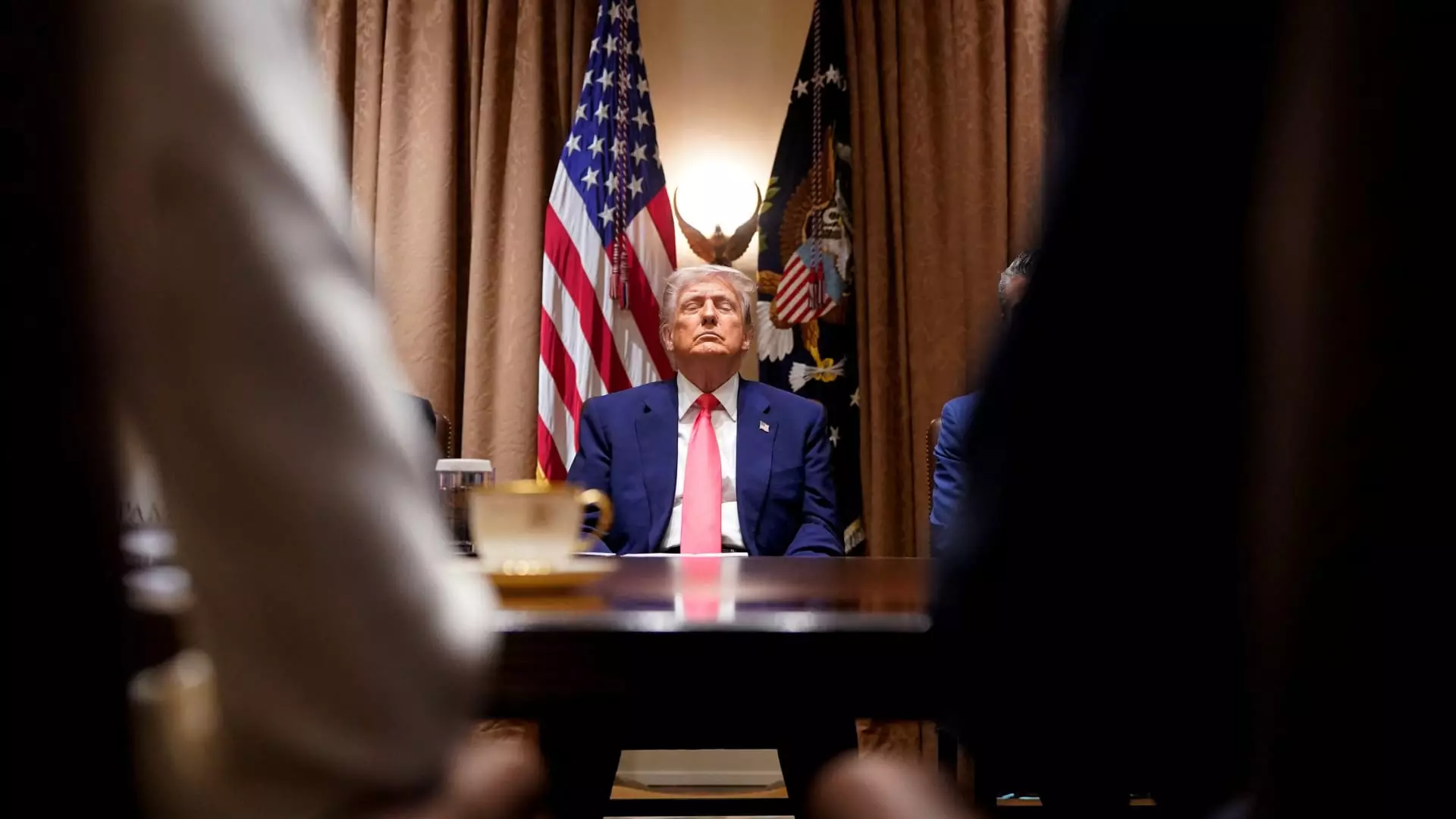In a striking development that echoes the classic narrative of government overreach, five small businesses have banded together to challenge President Donald Trump’s recent tariff machinations. Their lawsuit, filed in the U.S. Court of International Trade, argues that the President’s actions are not only misguided but fundamentally unconstitutional. By invoking the International Emergency Economic Powers Act (IEEPA), Trump is said to have stepped beyond the lawful bounds of his authority, effectively usurping Congressional power. This legal spat exemplifies a pressing concern: the erosion of democratic safeguards in the face of unchecked executive action.
The Flawed Justification of ‘Emergency’
The core of the lawsuit hinges on the assertion that trade deficits cannot be classified as an emergency. This narrative raises unsettling questions about how we define economic crises. The plaintiffs argue that for decades, trade deficits have existed without catastrophic consequences. Opponents of the tariff regime find Trump’s emergency declaration to be not just a stretch, but a blatant manipulation of terminology. What we witness here is not just an economic policy—it’s a political theater, where the stakes are small businesses struggling to survive against heavy-handed government tactics.
The Human Toll: Real Stories from Affected Businesses
The lawsuit is not a mere abstract legal argument; it provides a window into the harsh realities faced by small businesses in America. Consider Terry Precision Cycling, a Vermont-based company that projects it will face crippling tariff costs exceeding $1.2 million by 2026. For a business of that size, these figures aren’t just numbers; they represent livelihoods—jobs at stake, families relying on them for stability. The additional burden of unexpected tariffs thwarts entrepreneurial spirit and innovation, both of which are vital for a thriving economy.
Similarly, VOS Selections, an importer of fine wines and spirits, is emblematic of a sector that the tariffs disproportionately impact. Rather than using their resources to grow and expand, these businesses are bogged down in a retaliatory spiral that places their very existence in jeopardy. Each small company affected contributes uniquely to the tapestry of American commerce, and their struggle is a microcosm of larger economic distress.
A Call for Accountability
As the case unfolds, the legal implications stretch far beyond tariff laws—they touch on the very fabric of American democracy and accountability. The lawsuit acts as a reminder that the principle of “no taxation without representation” is more than a revolutionary slogan; it is a cornerstone of our societal contract. Executives must not wield unilateral power to impose taxes, tariffs, or economic hardships without the voice and consent of the people’s representatives. In an era where political norms are constantly being tested, this lawsuit serves as a vital check against potential tyranny.
The outcomes of this case will reverberate through the halls of power, influencing not just economic policy but the very principles that govern our democracy. As citizens, it is our role to scrutinize these power dynamics, ensuring that our leaders remain accountable and that the voices of small businesses are amplified instead of stifled. The battle against executive overreach is far from over; it remains a continual fight for the heart and soul of American democracy.

